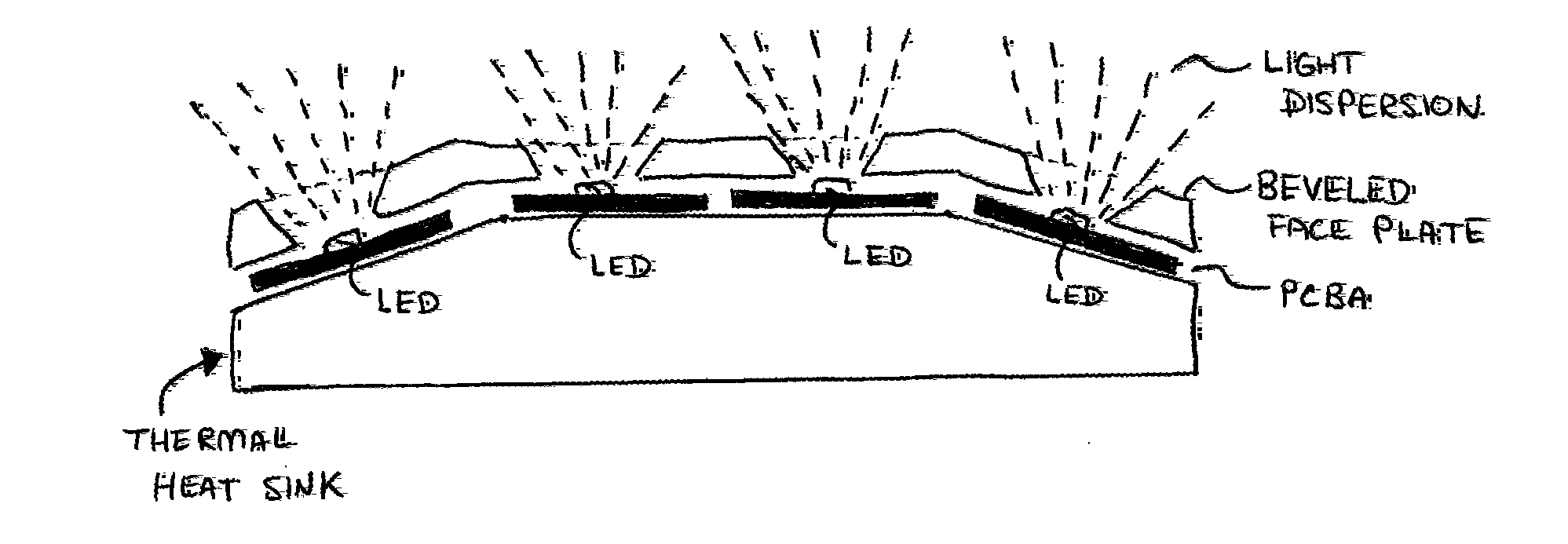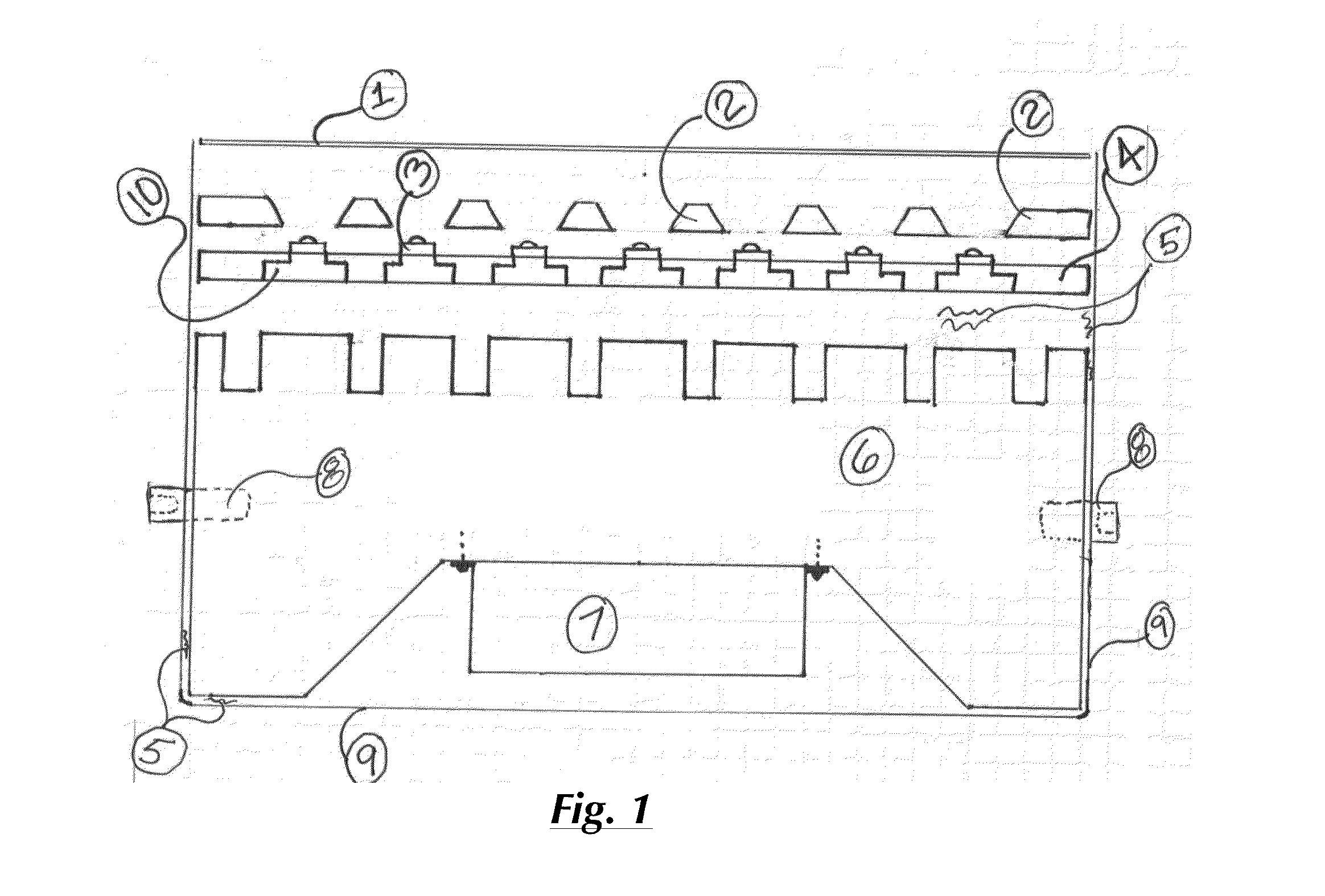High Efficiency LED Lighting System with Thermal Diffusion
- Summary
- Abstract
- Description
- Claims
- Application Information
AI Technical Summary
Benefits of technology
Problems solved by technology
Method used
Image
Examples
Embodiment Construction
[0101]The present application presents an improved LED lighting system. The improved LED lighting system functions without LED drivers and offers improved efficiency and efficacy relative to the prior art. The system further comprises passive thermal diffusion structures, and optionally, active thermal diffusion means.
[0102]Turing first to FIG. 1, a cross-sectional diagrammatic side view of a preferred embodiment of the improved LED lighting system is shown. In this preferred embodiment the LED lighting system may be installed in a standard light fixture housing 9, such as but not limited to those in use indoors and outdoors, with some example outdoor uses including stadiums, flood lights, green house lights, and parking lot lights. The device preferably comprises a one-piece light guide faceplate coupled with a transformer, both housed within a housing having a rounded cover to provide protection from the elements when the device is used outdoors. The rounded cover is removable the...
PUM
 Login to View More
Login to View More Abstract
Description
Claims
Application Information
 Login to View More
Login to View More - R&D
- Intellectual Property
- Life Sciences
- Materials
- Tech Scout
- Unparalleled Data Quality
- Higher Quality Content
- 60% Fewer Hallucinations
Browse by: Latest US Patents, China's latest patents, Technical Efficacy Thesaurus, Application Domain, Technology Topic, Popular Technical Reports.
© 2025 PatSnap. All rights reserved.Legal|Privacy policy|Modern Slavery Act Transparency Statement|Sitemap|About US| Contact US: help@patsnap.com



